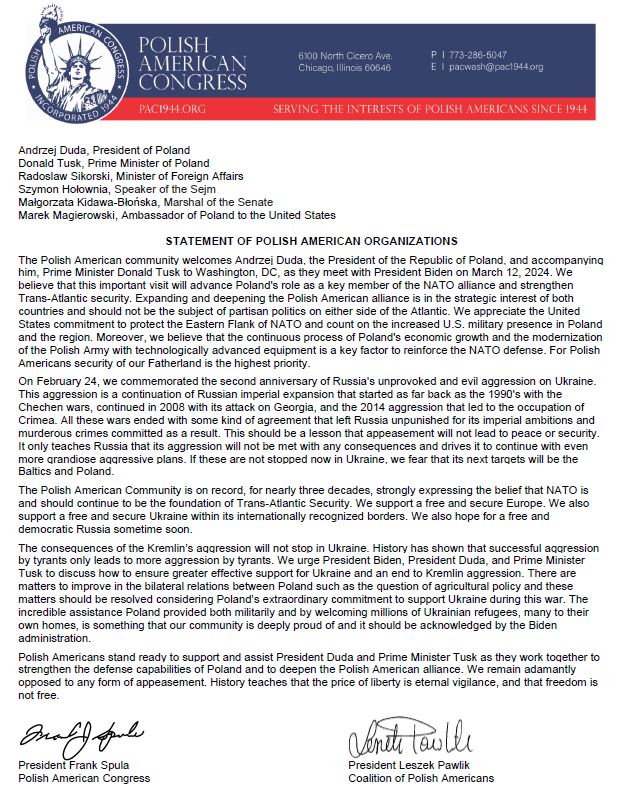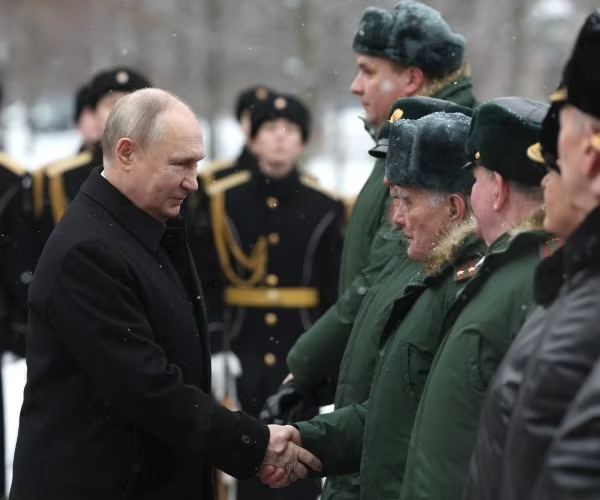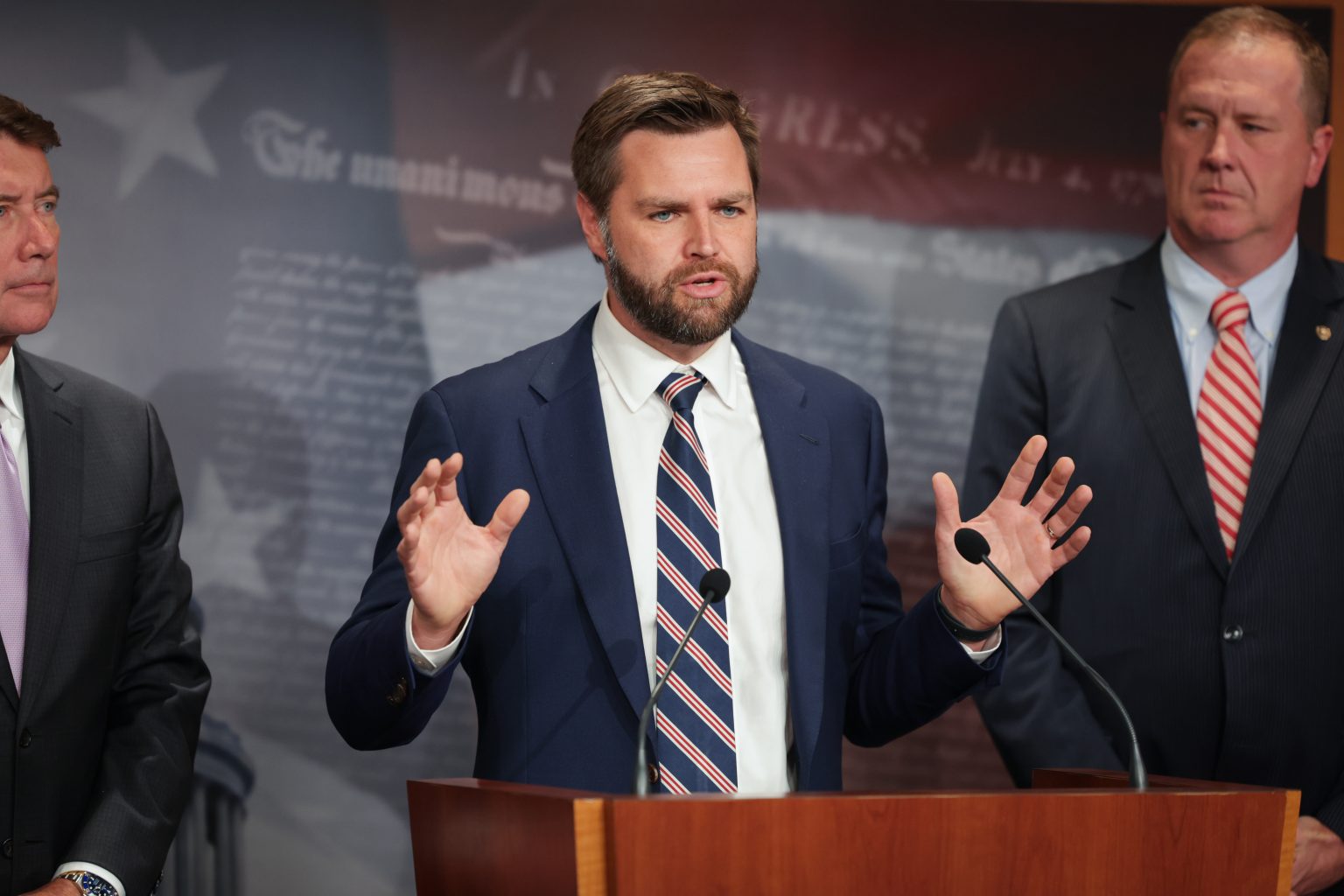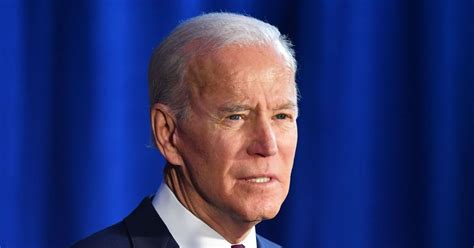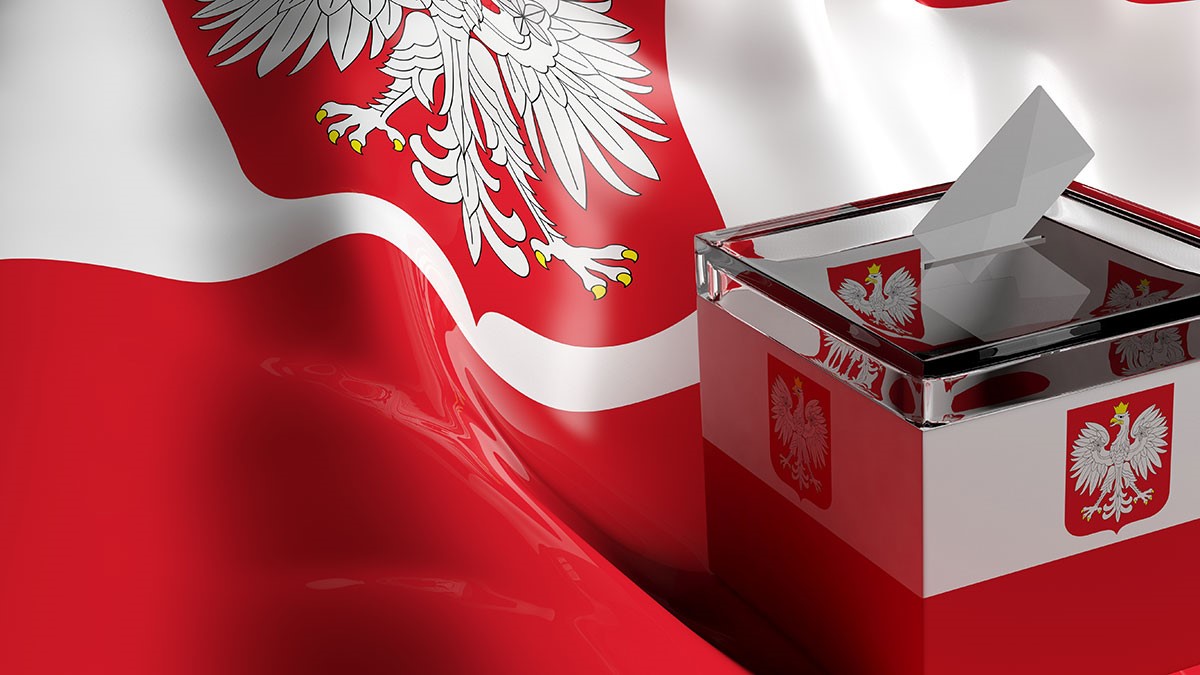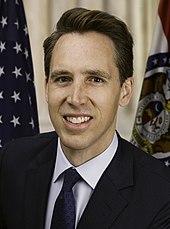Statement of Polish American Organizations
STATEMENT OF POLISH AMERICAN ORGANIZATIONS
Putin’s Appeal to U.S. Audience Duplicitous
By Dr. Lucja Cannon Friday, 23 February 2024 10:33 AM EST
In his Tucker Carlson interview, Vladimir Putin gave a two-hour historical lecture, which was tedious and cynical because it contained all his previous propaganda themes, beginning in the 1990’s, illustrating his obsession with distorted Russian imperial history.
While expounding on this mishmosh of facts and fiction, he emphasized the victimhood of Russia and how all wars Russia ever conducted were defensive and fully justified.
But as diplomat and former national security adviser Zbigniew Brzezinski used to say: one does not become the biggest country in the world by being defensive.
Most of his exposition was concerned with proving that Ukraine always belonged to Russia. He expounded how Ukraine is not a real country as it shares with Russia common language, history, culture, religion and economy and many of its lands were appropriated from Russia, Hungary, Poland, and Romania.
Putin cannot accept that the Ukrainians chose to be associated with the West rather than Russia in 2014, so he claims that the Maidan revolution was created by the CIA.
It formed a division between the united Russian and Ukrainian people and resulted in supposed Ukrainians attacks in 2014 and 2022. Russia wanted peace but it was Ukraine who wanted to resolve these issues by military force.
The quality of his historical discourse is illustrated by Putin’s example of Poland, which he obscenely claims, was aligned with Hitler and was responsible for the outbreak of World War II.
Rather the opposite is true.
It was the Hitler-Stalin Pact of Aug. 23, 1939 which created the coalition to invade and partition Poland, and therefore trigger World War II.
Putin needs his fantasy, because he cannot otherwise explain away this great demonstration of Russia’s aggression and responsibility in recent history.
Further, he claims that after the fall of Communism, Russia was not welcomed by the Western family despite of the removal of the ideological divide.
While the West thinks that it did everything for Russia that it could in the 1990’s to help with its transition, Putin gives an example of a most painful rejection: President Clinton said that Russia could not join NATO.
All these small countries in Eastern Europe joined NATO but Russia was rejected, an illustration of supposed traditional Western hostility.
At some point, Tucker asks Putin whether he’s expansionist, whether he plans to invade Poland. Putin claims he’s not interested in invading Poland.
But this is what he said about Ukraine, Georgia, and Chechnya.
Then he proceeded to invade them.
Putin also may intend to invade Poland.
He moved his nuclear weapons to Belarus near the Polish border, constantly launches cyberattacks against Polish institutions, and has placed murderous Iskander missiles aimed at Warsaw, in the neighboring Kaliningrad.
He adds that he would only invade if Poland if it attacked Russia first.
Considering his record, this is not in the least reassuring.
But the main and most interesting part of the Putin’s interview occurs when he addresses Tucker Carlson’s U.S. audience, making his offer for the resolution of the Ukraine war.
Putin says, “This is an attempt to stop it.”
In order to stop the fighting, Putin calls on the U.S. government to cease funding military aid to Ukraine, this just as such a piece of legislation is currently in the U.S. Congress.
He wants Ukraine or the U.S. to approach him for negotiations.
But first, they must respect and recognize Russia and its interests just as it sees itself: a great and separate civilization with mythical history as defined by Putin.
Russia is powerful but not aggressive. It is the west who is fear mongering he claims.
So does Russia have any conditions for these negotiations?
Were any of its aims not yet realized? Carlson asks.
Putin answers: de-Nazification and explains that Ukrainian nationalists under leadership of Stepan Bandera and Roman Shukhevych collaborated with Hitler during the World War II and murdered Poles, Jews, and Russians.
Now they are being celebrated in Ukraine as false national heroes; this is unacceptable to Russia. He recalls an example of a Ukrainian Waffen SS soldier being celebrated in the Canadian Parliament last year by Zelenskyy and his delegation.
Putin tells the American elite: the world is changing, the United States is no longer the most powerful, and it’s inferior to our friend China.
So do not pressure us but negotiate.
He wants the U.S. to lift Western sanctions and financial restrictions against Russia, so it can sell gas to Europe and conduct financial transactions without hindrance.
Putin’s position seems to be: remember Russia’s victory is inevitable; your policies are erroneous, be ready for a dialogue on my terms.
Even though Putin claims that U.S. hegemony is at an end, his actions say the opposite.
That’s why he is appealing to American voters because the future of Ukraine will be decided here in the next presidential election.
He’s appealing to them to stop the bloodshed, not by negotiations but by positing terms of Ukraine’s surrender.
The West seduced Ukraine, Putin wants it back.
If only the United States withdraws, Putin will be able to deal with ungrateful Ukrainian secessionists and these weakling Europeans.
Afterwards, friendly relations can be restored.
This is Putin’s demand to the American audience. But what is the real situation?
Ukraine defended its independence and fought the Russians to a stalemate, which is a victory, considering a difference in their military potentials.
Russia cannot win.
Putin can’t tolerate that.
He needs a clear victory and can’t stop short of it.
Since he can’t impose his solution on Ukraine, he wants to win this war politically in the United States.
His monologue with the radical inversion of facts and sophistry is supposed to convince the Americans of his reasonableness and desire for business as usual.
But an agreement with this personification of duplicity and subversion will only mean the postponement of confrontation to a less convenient date.
Putin virtually never keeps his word. Any settlement will be very difficult.
Threat to democracy and human rights in Poland
Source: niezalezna.pl
Three months ago, parliamentary elections were held in Poland, in which a coalition of parties advocating for the improvement of democratic standards and the restoration of the allegedly endangered rule of law came to power. However, within a few weeks, not only were there attacks on democratic state institutions, and many basic principles of the Polish Constitution were violated, but there was also a radical threat to freedom of speech. The first political prisoners have emerged. Institutional and increasingly physical violence is replacing the debate. Politicians, the judiciary, and even private businesses are being intimidated.
After years of communism, Poland struggled to rebuild its democratic institutions, casting off the yoke of the totalitarian past imposed by Moscow’s occupiers. Despite significant economic progress, changes in some areas were slow and not without serious mistakes, especially in the judiciary. To this day, individuals responsible for the repression during the martial law of the communist regime still sit in the courts, despite their advanced age.
Criticism of the ongoing changes united parties that recently assumed power in Poland. However, instead of improving democratic standards, we are witnessing an attack on democratic state institutions and a dangerous threat to freedom of speech.
The new government’s first decision was the forcible takeover of public media. According to Polish law, these media outlets should be managed by government-independent institutions, with specified terms outlined by Polish law. However, individuals appointed by the government disrupted the signal of the main news television channel, and, with the help of hired private security personnel, forcibly removed the legal boards of the media outlets. They were not allowed to return to work even after court decisions declared the government’s actions illegal.
Hundreds of journalists are unable to work, and dozens have already been dismissed. The ruling coalition’s camp also organizes attacks on private media critical of its actions, using familiar mechanisms of defamation and intimidation seen in authoritarian regimes.
At the beginning of the year, the police stormed the presidential palace, arresting two members of the parliament without the knowledge and consent of the president, who were persecuted for fighting corruption. Both parliamentarians have undertaken a hunger strike, and their lives are in danger.
These arrests would not have been possible without the government rejecting the decision of the Polish Constitutional Court, which had previously deemed the actions against the members of the parliament illegal. A similar decision was made by the chamber of the Supreme Court designated for this purpose by law, and both parliamentarians were pardoned by the president.
Unfortunately, the will of neither of these key institutions for Polish democracy has been respected. The Speaker of the Sejm, representing the government majority, ordered the trial to be held in an unauthorized chamber of the Supreme Court, the only chamber still occupied by individuals responsible for the repression during the martial law of 1981.
A significant number of prosecutors and judges refuse to succumb to pressure from the new government, leading to further unlawful acts. The leadership of the prosecutor’s office was completely unlawfully stripped of power, contrary to the law. The Minister of Justice is attempting to obstruct the actions of independent prosecutors seeking to investigate allegations against the new government.
There are serious signs of intimidation of private businesses as well, especially those that could be associated with initiatives unfavourable to the government. The independence of the Central Bank is under threat, and decisions of the Polish Constitutional Court are completely ignored.
For many people in Poland and around the world, it is shocking that politicians who came to power with slogans of improving Polish democracy and restoring the rule of law are implementing standards reminiscent of those seen today in Belarus or Russia.
Poland is heading in a dangerous direction, jeopardizing the most basic civil rights, and undermining democratic institutions. Such actions cannot be accepted in the name of any political plan. These actions must be met with the opposition of the international public opinion.
Senator Vance Slams Biden Administration’s Silence On Polish Government Attacks On Press Freedom
“The firings of personnel at Telewizja Polska (TVP), Polskie Radio, and the Polish Press Agency, initiated promptly after Prime Minister Donald Tusk and his political allies took power, raise questions about this new government’s commitment to media freedom and the rule of law.”
CPA Letter to U.S. President Joe Biden
Dear Mr. President:
The Coalition of Polish Americans, a non-partisan organization dedicated to promoting the interests of Polish Americans, and whose goal is to advance long-standing friendship and cooperation between both countries, wants to express our deep concern with the ongoing developments since the transition of power to the newly elected government in December 2023. Similar to the United States, Poland has been wrought by severe ideological conflict for several years. From 2015 until 2023, the leftwing opposition has questioned actions of the previous government as illiberal and antidemocratic.
The U.S administration has bought into this ideological discourse and repeatedly criticized the previous Law and Justice government for trying to reform the broken Polish judicial system. This was based on the information provided by the then Polish opposition and did not take into account the reality of the broken judicial system still pervaded by former communists completely unaccountable to the elected Representatives. Judges in Poland elected themselves without any input from legislature, a situation completely separated from the usual practice of checks and balances existing in all other Western democracies.
The Law and Justice government was also reprimanded for trying to reform the Polish media market. The U.S. administration expressed grave concern with the freedom of press in Poland, while other countries like Germany, France, and the USA itself, have much stricter rules concerning foreign media ownership than the Polish law. In December 2023 the new government forced changes to Polish public television, ignoring applicable statutory provisions, and going as far as turning off the signal and putting the television station into receivership. Nevertheless, we have not heard criticism from the USA, even though the current government has the support and control of over 90 percent of the Polish media. Lacking any legal justification, the new government is using “strong men”, in Donald Tusk’s own words, to take control of public media and threatens to do the same with the National Bank of Poland, Constitutional Tribunal and other public institutions.
We understand that our administration hoped to build on well-established relations with Poland under Donald Tusk’s leadership. However, yesterday certain barriers of respect for the law have been breached. On the premises of the Presidential Palace, two opposition members of Sejm were forcefully arrested for the crime non other than fighting corruption, with total disregard for the pardons they had been granted by President Duda. This constituted brutal disregard for standard democratic practices and disrespect for President Duda, twice elected by millions of Poles to be the head of state. It further demonstrates a highly concerning escalation of the internal conflict that threatens the stability of Poland, until now a leader and staunch and dependable U.S. ally in the war in Ukraine. We fear that this escalation is due to the fact that the current government is too dependent on Germany, and that may affect its efforts to help Ukraine.
We call upon the U.S. administration, before it is too late, to show its concern with the developments in Poland and that it expects the Tusk government to adhere to basic democratic standards, to follow the rule of law and Polish constitution, just as it was expected from the previous Polish government.
Respectfully,
Leszek Pawlik, President
Anna Zawadzka, Vice President American Affairs
cc.:
Hon. Antony Blinken
United States Secretary of State
Hon. Chuck Schumer
Majority Leader of the United States Senate
CPA Urgent Letter to Department of State and National Security Council
December 21, 2023
Credible reports of actions taken against public media in Poland are cause for great concern amongst Polish Americans. While the government in Poland has the legal right to reform public television according to its political ideology, all changes made during the ongoing government transition should be in accordance with the law. The illegal and complete shutdown of a public television channel is not a legitimate form of public media reform.
The parties that make up the newly formed coalition government used to pride themselves on being defenders of the rule of law prior to the recent elections. They should adhere to these principles even more so now that they are governing the country. We urge Prime Minister Tusk to ensure that his government respects the rule of law.
In recent years the U.S. Administration expressed its desire that the previous Polish government obeyed the rule of law. We hope that this stance to ensure proper democratic standards are followed is applied also to the Tusk government. Cutting off the signal of a news channel seems more in line with a totalitarian state than democratic governance. Polish Americans devoted themselves selflessly to the liberation of Poland from both Nazi Germany and Soviet Russia, and we cannot stand by while Poland’s freedom and good name are threatened by irresponsible actions of questionable legality.
We urge the U.S. Administration to release a robust statement condemning the Tusk government’s blatant disregard for constitutional and statutory regulations and the rule of law. Their attempt to silence public television, the sole alternative to the uniform perspective of commercial media, effectively eliminates media plurality in Poland.
We ask the U.S. Administration to maintain its stance that the rule of law is essential and convey to the Tusk government to operate within law and democratic standards.
Leszek Pawlik
President
CPA Annual Convention participants visit Polish Memorials in Southfield, MI
After the CPA Annual Convention of 2023, which was held in early November at Orchard Lake Schools, participants visited the Holy Sepulchre Cemetery in Southfield, MI, lit candles and said their prayers at the Memorial sites of the Blue Army Veterans and of the Orchard Lake Schools faculty members.
Poles Are Voting in What Could Be Europe’s Biggest Election This Year
Support for Ukraine has emerged as core campaign issue, with upstart party driving the debate to the right
By Thomas Grove and Karolina Jeznach
Updated Oct. 15, 2023 12:07 am ET Wall Street Journal
WARSAW—Poles are set to head to the voting booths Sunday in what is likely to be Europe’s most important election this year—one in which a smaller upstart party has pulled the debate to the right by questioning how much longer Poland can throw its full support behind its neighbor Ukraine.
Confederation, or Konfederacja in Polish, has no realistic prospect of gaining power, nor does it say it wants to participate in a new government. But its willingness to break the taboo of questioning support for Ukraine after Russia’s invasion last year has shifted the playing field, driving the ruling Law and Justice Party to compete for votes by taking a notably more hostile approach to providing indefinite backing for its neighbor.
The far-right Confederation appears to have tapped into the public mood by saying it is time to stop support for the refugees who fled here after Russia rolled into Ukraine in February last year. More than one million Ukrainians came to Poland, where they can compete for jobs, use the Polish healthcare system and claim other benefits.
“There is a growing resentment within the Polish society toward Ukrainians. Poles are starting to feel undervalued, bitter and as if there is not enough appreciation—only expectations,” said Emilia Kujawska, 52, an IT service manager who lives in the suburbs of Warsaw and said she would be voting for Confederation.
Though Poland’s support for Ukrainians is still among the highest in Europe, polls show it is waning. One survey in August indicated that around a quarter of Poles want to cut off funding, up from low single digits last year, and the shift in sentiment has made itself felt in the election campaign, eating into support for the right-leaning Law and Justice. Polls show the incumbent winning 37% of the vote, making it the most likely to form a government, though less than the 44% it secured in 2019. The opposition alliance, led by the former prime minister and former president of the European Council, Donald Tusk, is forecast to win 30%.
The first exit polls are expected on Sunday evening, when the likely formation of the next government is likely to become clear.
The surprise surge in support for Confederation, some of whose members previously have expressed antisemitic views, could change the political dynamic in Poland in what could be a critical moment in the West’s support for Ukraine.
“They introduced into the core of the debate the nationalist message anti-Ukrainian sentiment,” said Wojciech Przybylski, a political analyst at Visegrad Insight, a Warsaw-based think tank focused on central Europe. “That message might be hard to get rid of.”
Confederation’s messaging found a space in the mainstream in the weeks before the election when the ruling Law and Justice, or PiS as it is known in Polish, began to make waves with Ukraine, first implying Kyiv wasn’t sufficiently grateful for Warsaw’s help and then imposing a unilateral ban on Ukrainian grain, in violation of a European Union decision. It argued the imports’ rock-bottom prices were hurting the country’s farmers.
A few days later, Polish President Andrzej Duda compared Ukraine to a drowning person who could pull under anyone who tries to help, while the prime minister said it wouldn’t share any of its new military hardware with Kyiv.
The rising tensions have given cause for concern for the U.S., which has been coordinating its military aid for Ukraine through Poland. And while the friction eventually subsided, rising anti-Ukrainian sentiment could cause further headaches for Washington, which is hoping for a stable partner to see through its Ukraine policy even as its own support for Kyiv comes under growing scrutiny.
“If a government with PiS comes through, Washington would accept that, but it wants first and foremost a consistent and responsible partner,” said Przybylski. Analysts say that while no party alone has enough support to form a government, PiS could form a government by picking off lawmakers aligned with Confederation, which itself is a disparate group with various parties and agendas.
PiS has largely campaigned on its pledge to keep Poland safe and stable as the war drags on next door, raising the specter of further Russian aggression while boosting inflation and migration.
At this election’s sole debate, Prime Minister Mateusz Morawiecki told the audience that only PiS could keep Poland secure and repeated accusations that Tusk, who leads the opposition alliance Civic Platform, would be willing to give away half of Poland to appease Russia if it invaded.
Tusk has dismissed the accusations as untrue, but the ruling party has tried to double down on its security credentials at any opportunity. When Russian paramilitary fighters from Wagner temporarily rebased in Belarus, PiS sent some 4,000 troops to the border. It now plans to build the largest military force in Europe with new reforms and fresh procurement from the U.S. and South Korea.
“I definitely feel safer with PiS in power than with the Civic Platform. My father is a retired soldier, a former sapper who took part in several U.N. missions, and he told me that during Civic Platform times, they were actively disarming the country, getting rid of many units,” said Lukasz Szewczuk, 46, a Warsaw resident and longtime PiS supporter.
Jaroslaw Kaczynski heads the ruling Law and Justice party, which has pushed Poland further from the rest of the EU in recent years. PHOTO: JAAP ARRIENS/ZUMA PRESS
There are signs, however, that PiS leader Jaroslaw Kaczynski’s nationalist direction is bleeding into culture-war issues that have pushed Poland further from the rest of the EU. In the eight years under PiS rule, the country has passed anti-LGBT laws and sharply restricted access to abortion, both of which were formally criticized by Brussels.
The government has also clashed with Brussels in recent years over judicial reforms passed by Warsaw in 2019 that removed a number of judges. The European Court of Justice deemed the moves illegal and is withholding funds until they are reversed. PiS said they were needed to cleanse the legal system of communist sympathizers.
Supporters of Tusk and his opposition alliance, meanwhile, have led major rallies with hundreds of thousands of participants in liberal-leaning Warsaw, united by a shared distrust for both Kaczynski and PiS policies, which they say have pushed Poland further from Europe while restricting individual liberties.
“PiS is destroying Poland, on so many levels. This is like going back to the Polish People’s Republic when everything was centralized. That is true now too—with one man in charge of everything: Mr. Kaczynski,” said Justyna Grabowska, 52, a graphic designer from Warsaw.
Write to Thomas Grove at thomas.grove@wsj.com
Response to Senator Hawley National Security Speech
Senator Josh Hawley Delivers National Security Speech ‘China and Ukraine: A Time for Truth’.
Dear Senator Hawley,
- Russia is an ally of China.
- Helping Ukraine helps to weaken a Chinese ally thus weakens China’s geopolitical standing.
- Russian victory in Ukraine would increase China’s geopolitical standing.
- Thus, if we perceive China as a main U.S rival, it is imperative that we do everything to help Ukraine and to weaken Russia.
- Ukrainian victory in the war against Russia helps the United States geopolitically.
- U.S support for Ukraine also re-assures its NATO allies, particularly eastern flank allies, that they will be protected from Russian invasion.
- Russia will never support the United States against China. It is far more likely that a supposed U.S main ally Germany will side with China in the U.S-China rivalry.
- It is dangerous to openly argue that the United States cannot fight two rivals at the same time. Defeatist approach to foreign policy has never been successful. Furthermore, it is quite likely that the forces and weapons used in the possible war between China and the U.S will be different from weapons that the United States provides to Ukraine.
- We fear that the arguments that support scaling down U.S assistance to Ukraine reflect pervasive Russian influence in American society.
- Finally, it has become too common that the debates about foreign policy reflect domestic political debates. Support for Ukraine should not be seen through the light of internal U.S politics. That will only weaken the United States standing abroad.
- However, even if we do look at this from the perspective of internal U.S politics, this type of rhetoric has a great impact on the choices made by the diaspora communities from East and Central Europe including the 10 million strong Polish-American community. These communities see clearly who the aggressor in the war is and are very wary that the war will spread. Politicians that argue for scaling down support for Ukraine will drive those voters into the arms of their opponents.
We strongly believe that support for Ukraine should be bipartisan and strong.
Leszek Pawlik, President
Coalition of Polish Americans
Dorota A. Grejner-Brzezinska appointed to National Science Board
Dr. Dorota A. Grejner-Brzezinska is a Distinguished University Professor, Lowber B. Strange Endowed Chair and Professor in the Department of Civil, Environmental and Geodetic Engineering at The Ohio State University (OSU), where she serves as Vice President for the Knowledge Enterprise. She is also a co-Director of the Satellite Positioning and Inertial Navigation Laboratory. Her research interests cover Global Navigation Satellite Systems (GNSS) algorithms and applications, GNSS and other sensor integration for navigation in GNSS-challenged environments, sensors and algorithms for collaborative navigation, and image-based navigation with Artificial Intelligence.
Brzezinska is a member of the National Academy of Engineering, Fellow of the Institute of Navigation (ION), Fellow of the Royal Institute of Navigation, Fellow of the American Association for the Advancement of Science, and the recipient of the 2016 ION Johannes Kepler Award, the 2005 ION Thomas Thurlow Award, the 2005 and 2015 US Geospatial Information Foundation Academic Research Award, and the 2018 International Association of the Institutes of Navigation John Harrison Award. She has served as the ION President, and President of the International Association of Geodesy Commission 4, Positioning and Applications, and is an IAG Fellow. Brzezinska serves as Principal Investigator for the NSF Engineering Research Visioning Alliance and is a member of the National Space-Based Positioning, Navigation, and Timing Advisory Board, and served on the U.S. President’s Council of Advisors on Science and Technology. Brzezinska holds an M.S. and a Ph.D. in Geodetic Science from OSU, and an M.S. in Surveying Engineering and Land Management Systems from the University of Warmia and Mazury, Poland.
Coalition of Polish Americans congratulates Dr Dorota A. Grejner-Brzezinska on her nomination.

